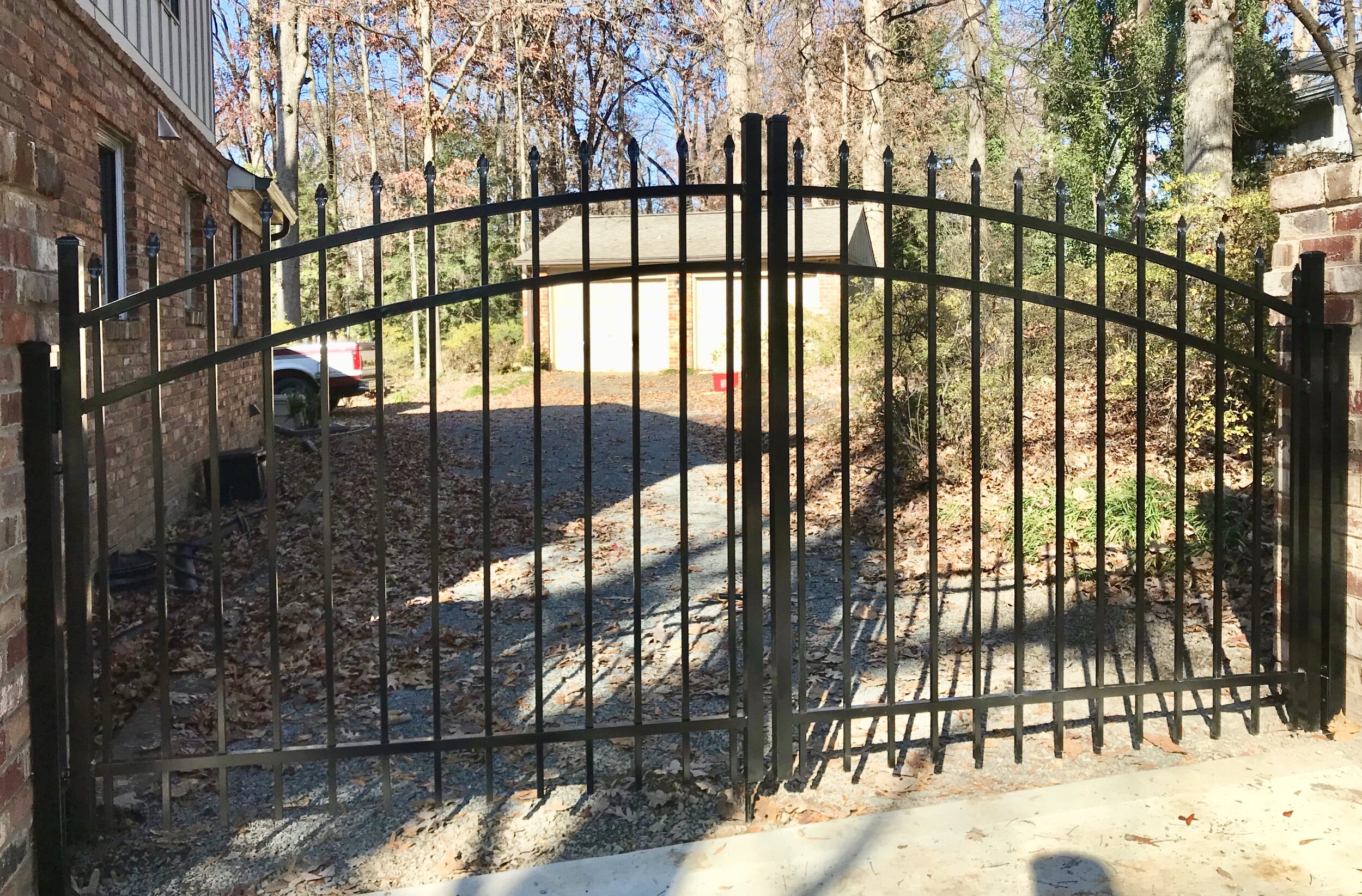The Science of Strength: What Makes Iron Wrought Gates Practically Indestructible?
A strong gate isn’t just about looks—it’s about protection, durability, and standing the test of time. Wrought iron gates are known for their incredible strength, often outlasting generations with little wear. But what makes them so tough? It’s not just the iron itself—it’s the way it’s made.
Unlike brittle cast iron, wrought iron is forged and shaped under intense heat, creating a structure that resists breaking, bending, and even rusting better than other metals. It’s the reason you’ll find century-old wrought iron gates still standing strong today. From their unique composition to their nearly indestructible nature, these gates are built to last.
How does the molecular structure of iron contribute to the durability of wrought iron gates?
The molecular structure of iron plays a crucial role in the durability of wrought iron gates, making them incredibly strong and long-lasting. Unlike pure iron, wrought iron contains a small percentage of slag inclusions—fibrous strands of iron silicate distributed throughout the metal. This unique grain-like structure gives wrought iron enhanced toughness and malleability, allowing it to resist cracking under stress while remaining incredibly strong.
Additionally, wrought iron's low carbon content (typically less than 0.08%) prevents it from becoming brittle, like cast iron, which has a much higher carbon content. This makes wrought iron more resistant to impacts, bending, and deformation, helping it maintain its structural integrity over time.
Furthermore, when wrought iron is forged and hammered during manufacturing, its molecular structure becomes even more compact and refined, increasing its density and durability. This natural resilience, combined with its ability to withstand weathering and corrosion, is why wrought iron gates are known for their practically indestructible nature.
What role does the forging process play in making wrought iron gates strong?
Forging is essential in shaping wrought iron into durable, high-strength gates. Unlike cast iron, which is poured into molds, wrought iron is manually heated, hammered, and shaped to create a more resilient and long-lasting material. Here’s how forging enhances the strength of wrought iron gates:
Increases Density and Strength – Repeated heating and hammering compress the iron's structure, eliminating internal voids and weak points, making it stronger and more impact-resistant.
Refines the Grain Structure—Iron's mechanical working aligns the fibrous slag inclusions, giving the material added toughness and resistance to cracking or breaking under stress.
Enhances Flexibility Without Brittle Breakage – Unlike cast iron, which is prone to cracking, forged wrought iron remains malleable, allowing it to absorb shocks and resist deformation.
Improves Corrosion Resistance—The slag inclusions in wrought iron act as a natural barrier against rust, further extending the gate's lifespan.
Customizes Strength and Design – Forging allows artisans to create intricate designs while maintaining structural integrity, ensuring beauty and durability.
At Master Fabrication, we use expert forging techniques to craft wrought iron gates that stand the test of time, offering security, elegance, and unparalleled strength.
How do wrought iron gates resist corrosion and environmental damage?
Wrought iron gates are known for their durability, especially when exposed to harsh weather conditions. Unlike other metals that easily rust or weaken over time, wrought iron has unique properties that make it highly resistant to corrosion and environmental damage. Here’s why:
Slag Inclusions Provide Natural Rust Resistance – Wrought iron contains fibrous slag inclusions, which create a grain-like structure that slows down rust formation compared to other types of iron. This makes it more resilient in humid and rainy conditions.
Protective Coatings Enhance Durability – Proper finishing, such as powder coating, galvanization, or rust-resistant paint, creates a barrier against moisture and oxidation, preventing rust from forming.
Minimal Carbon Content Prevents Brittleness – Unlike cast iron, which is prone to breaking down over time, wrought iron has a lower carbon content, making it more flexible and less likely to crack or corrode.
Weather Resistance in Extreme Conditions – Wrought iron can withstand fluctuating temperatures, heavy rain, and strong winds without losing strength or integrity.
Regular Maintenance Extends Lifespan – Occasional repainting, cleaning, and applying rust inhibitors can further protect wrought iron gates, ensuring they last for decades.
At Master Fabrication, we craft wrought iron gates designed to endure all weather conditions, offering long-lasting security and elegance for your property.
Why are wrought iron gates considered more durable than other metal gates?
Wrought iron gates are considered one of the most durable and long-lasting options compared to other metal gates, such as steel or aluminum. This durability is due to several key factors:
Unique Fibrous Structure—Wrought iron contains slag inclusions, which give it a grain-like texture. This structure makes it more resistant to bending, cracking, and breaking under pressure than cast iron or aluminum.
Lower Carbon Content Reduces Brittleness—Unlike steel and cast iron, wrought iron has a very low carbon content, making it more flexible and resistant to stress fractures. It also absorbs impact better, preventing it from becoming brittle over time.
Superior Corrosion Resistance – Wrought iron naturally resists rust better than untreated steel. When properly coated with paint, powder coating, or galvanization, it becomes highly resistant to moisture, oxidation, and environmental damage.
Hand-Forged Strength – Wrought iron gates are manually forged, heated, and hammered into shape. This process increases density, eliminates weak points, and ensures a longer lifespan than machine-made gates.
Withstands Harsh Weather Conditions – Unlike lightweight metals such as aluminum, wrought iron is heavy and can endure strong winds, rain, and extreme temperatures without warping or degrading.
At Master Fabrication, we craft wrought iron gates with superior strength, longevity, and timeless beauty, making them a smart investment for any property.
Invest in Wrought Iron Gates for Unmatched Strength Today!
At Master Fabrication, we craft wrought iron gates that offer security and timeless durability. Unlike other metal gates, wrought iron is forged to withstand heavy impact, harsh weather, and long-term wear without losing strength. Its unique composition, including fibrous slag inclusions and low carbon content, makes it resistant to bending, cracking, and corrosion.
Whether for residential or commercial properties, our wrought iron gates provide unmatched protection and elegance. Invest in a gate that stands the test of time—contact Master Fabrication today to explore our custom designs and expert craftsmanship!

